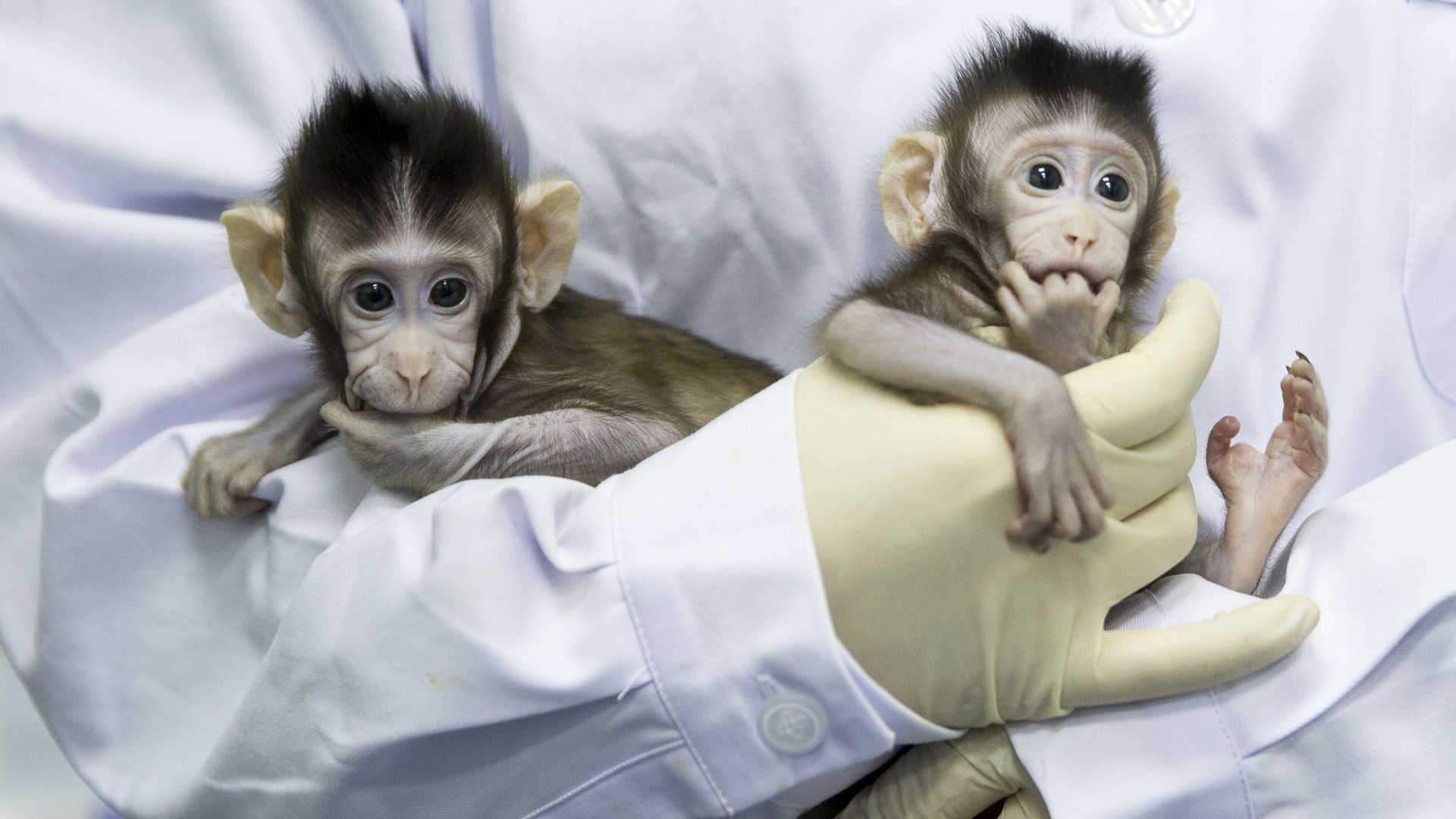Updated Jan 26, 2018 - World
Expert VoicesChina’s blockbuster biotechnology week
Add Axios as your preferred source to
see more of our stories on Google.

Two cloned macaques named Zhong Zhong and Hua Hua at the non-human-primate research facility under the Chinese Academy of Sciences (CAS). Photo: Xinhua / Jin Liwang via Getty Images
